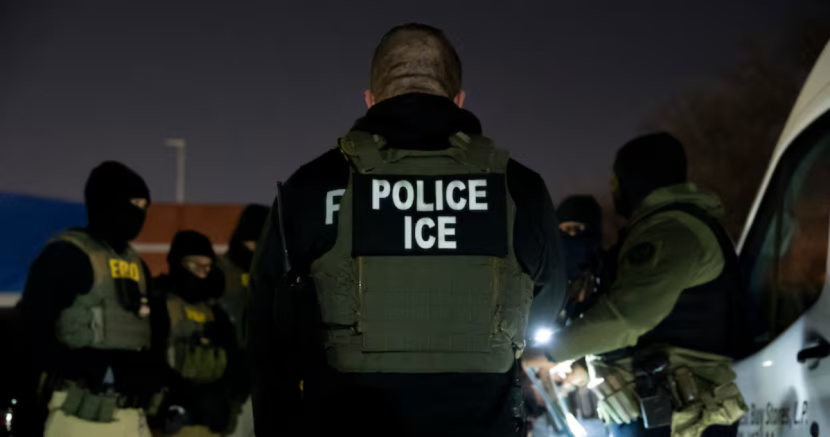If ICE agents can hide their faces, who’s protecting the public?

In recent months, conversations surrounding immigration enforcement have taken a chilling turn. We’ve heard officials and supporters of Immigration and Customs Enforcement justify the anonymity of its agents — who often wear balaclavas, refuse to identify themselves, and hide their badge numbers — by claiming it’s a matter of safety.
They say they fear being doxed, harassed, or even physically harmed. This concern, on its face, seems understandable. But what happens when that fear becomes the justification for a federal law enforcement agency operating with no transparency?
The central question is not about ICE’s safety. It’s about ours.
If a person claiming to be an ICE agent refuses to show a warrant, refuses to provide identification, and refuses to display their face or badge number, what distinguishes them from a vigilante or a kidnapper? In a country founded on constitutional checks and balances, the idea that law enforcement can disappear people without oversight is not just dangerous — it’s authoritarian. And it’s not hypothetical.
A federal court approved a settlement requiring ICE to adopt new policies after a lawsuit alleged that nearly 70% of those arrested in a 2018 raid were collateral arrests — carried out without individual warrants or the legally required justification. Nothing suggests that this is an aberration. That means in thousands of cases, the agency potentially offered no clear legal basis for its actions. No paperwork. No warrant. Just masked figures with weapons, knocking on doors or pulling people off the street. And the public has no way to verify their legitimacy.
This matters. During the summer of 2020, unidentified federal agents — many believed to be from Homeland Security agencies — grabbed protesters off the streets of Portland, Ore., and loaded them into unmarked vans. No warrants. No explanation. No names, leaving civil rights organizations to denounce it as an abuse of power. And yet, instead of being curtailed, this behavior has become normalized.
And let’s dispel one of the most common myths: that ICE is simply targeting “dangerous criminals” or “people here illegally.” That’s not what’s actually happening. Under the current administration, the very definition of who belongs in this country has been under systematic assault. The administration has pursued policies designed to strip legal status from temporary protected status holders to attempting to eliminate DACA, or Deferred Action for Childhood Arrivals. Even now, a federal court had to intervene to stop the administration from terminating protections for half a million Haitians. This came on the heels of the U.S. Supreme Court allowing the administration to revoke deportation relief for Venezuelans.
removing protections designed to scare immigrants away from using legal benefits for fear it could disqualify them from green cards. We have even seen instances of ICE arresting people as they leave immigration court hearings.
The goal isn’t just to enforce the law — it’s to change it so that no one is safe.
And who are the people actually being deported? Not hardened criminals. Not violent offenders. We’re talking about an 11-year-old U.S. citizen with a brain tumor. Elementary school children. Parents at work. Dozens of U.S. citizens. And, according to data from CNN, less than 10% of immigrants taken into ICE custody since October had serious criminal convictions. The majority of those targeted by ICE were not fugitives — they were neighbors, caregivers, classmates, co-workers and kids.
And yet ICE agents are being empowered to carry out these detentions with no visible badge, no warrant, and no requirement to prove who they are. How is the average person supposed to distinguish someone in law enforcement from a fraud? They can’t. And that should terrify all of us.
The risk of impersonation isn’t abstract: an incident in Philadelphia, another in South Carolina, and even the political assassination in Minnesota show that these are not isolated incidents. These are real people facing real danger from those exploiting the vacuum of accountability.
This isn’t just a civil liberties issue — it’s a fundamental question of democracy. A nation where federal agents can operate in secret, without oversight, is a nation teetering toward authoritarianism. If ICE agents can refuse to identify themselves while detaining civilians, and if the government can redefine who “belongs” here with every passing year, every passing day, then what remains of our due process? Who even are we?
Louis A. Bedford IV is a civil rights attorney in Dallas.
DONATE
Your donation supports our media and helps us keep it free of ads and paywalls.








